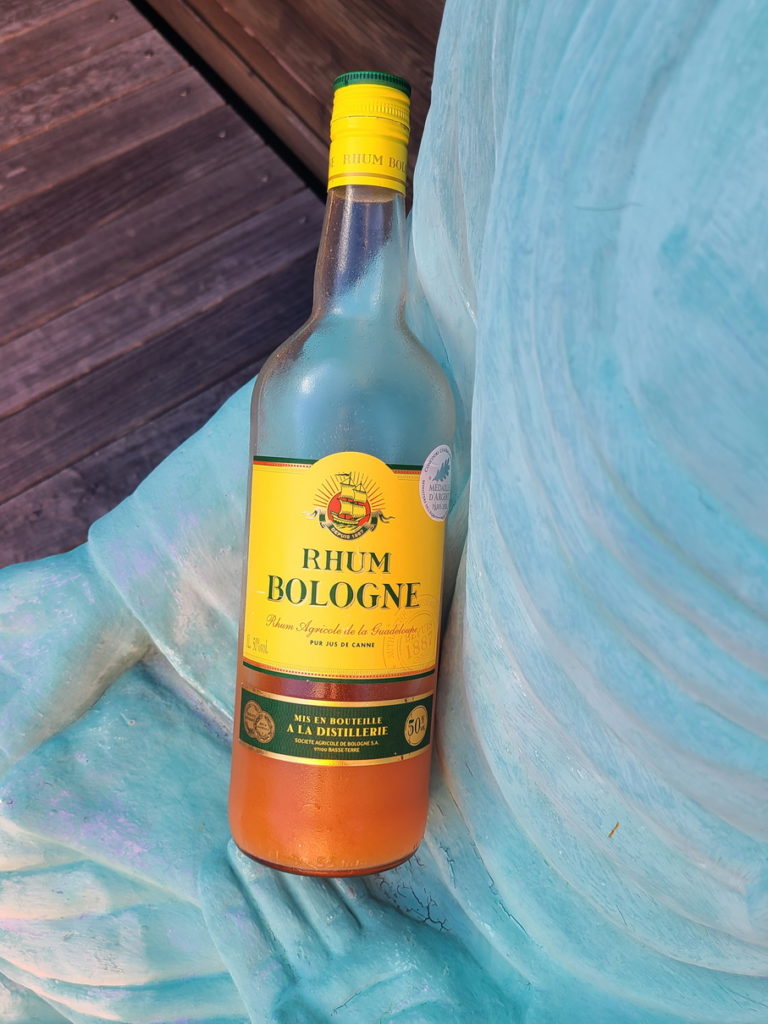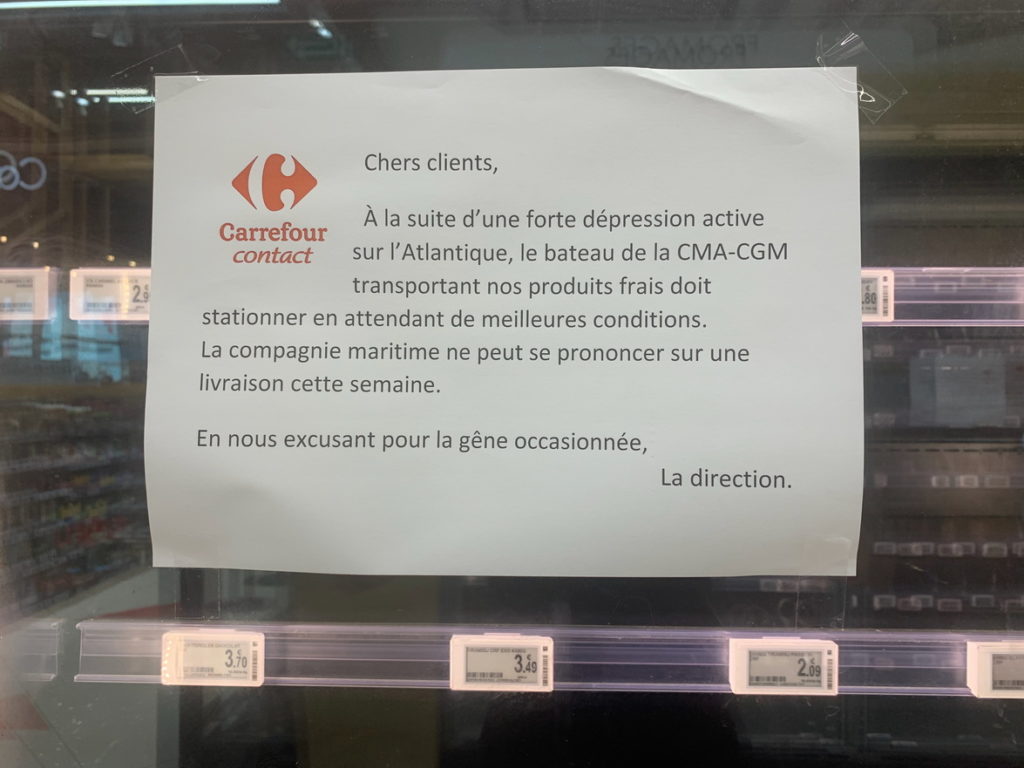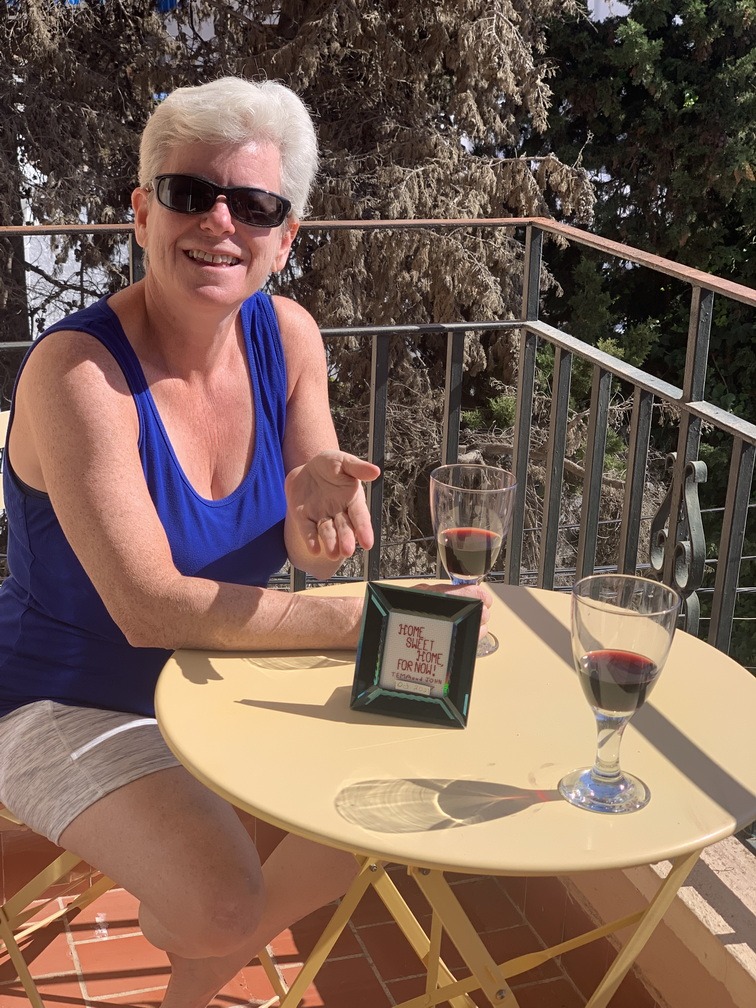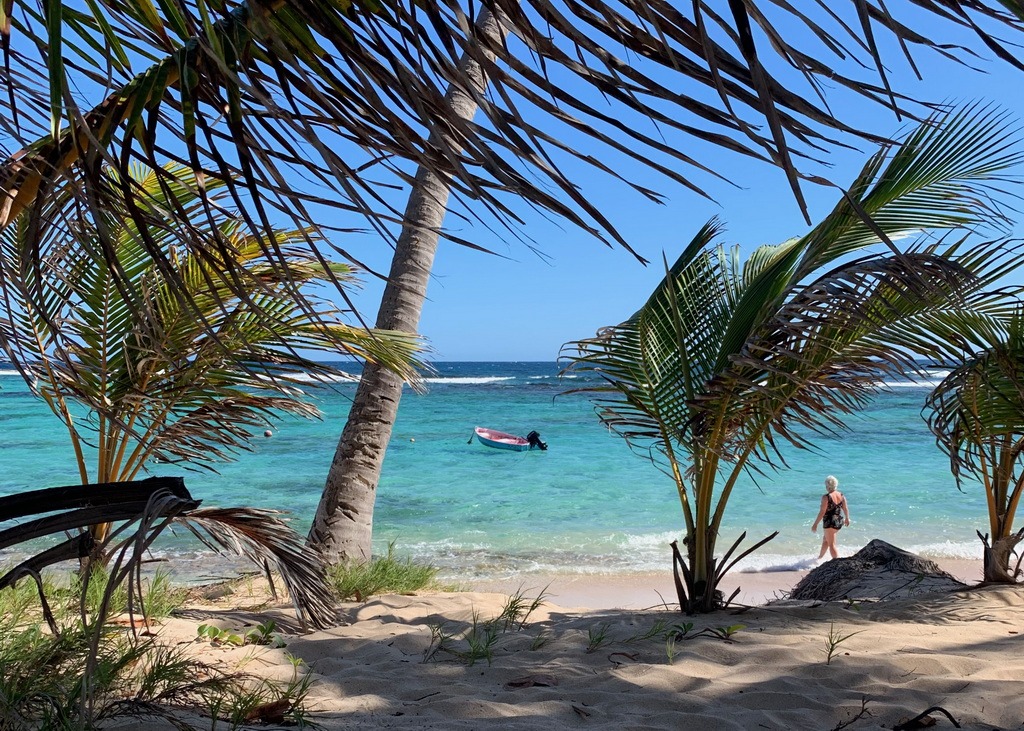
Three months ago, when we arrived in Malaga, I wrote about the first week of settling in to a new home base. We are now going through the settling in process in Guadeloupe, and it has been far more frustrating, even though we are fluent in the language (French). It finally dawned on me that in Malaga it was abnormally easy, because we’d lived there before. We were even renting the same apartment. So we knew where the key shops were, how to get most things done, and how to find people who could help us if we were stymied by something. But here we’ve been thrown back into the normal adaptation process, and I know from a lifetime of travelling and moving that it normally takes three months to get to the point were you feel truly comfortable in a new home base. (This is a bit of a problem when, like us, you move every three months! Damn you, Schengen rules, that won’t let us stay for six months at a time!)
So when DH exploded in frustration because the oven and even the microwave were designed in a totally unintuitive way that required downloading and studying a manual to figure out, or I was upset that the bike rental company only had a bike that was too big for me even though they knew how short I am, or the internet kept going off and rebooting didn’t seem to work, we should have simply reminded ourselves that this is the way things go whenever you take up residence in a place that is completely new to you.
It seems particularly ungracious to complain about the frustrations here when I’m enjoying gorgeous flowers, beaches and heat. (The weather forecast every day seems to be low of 22° C (72° F), high of 28° C (82° F) whereas in my home city of Edmonton, Canada, there’s a negative sign in front of both of those °C temperatures (-8 to -18°F). I mean, I could complain about the humidity (28° feels more like 38° in the humidity, there are tiny ants on the counter, and the night-time noises of all those birds, tree frogs and insects … well, mon dieu, quelle vacarme! But somehow I don’t think I’d get much sympathy from any of you. (And besides, I quite like the night-time symphony. It lulls me to sleep amazingly quickly. There’s enough complexity in it to keep one’s mind from wandering, but enough regularity to be soothing.

Bit by bit we are getting things figured out. Turns out we’d been trying to reset the wrong box in our attempts to reconnect the Internet. (The TV is now thoroughly messed but, but luckily, we don’t watch TV.) The bike rental shop gave me a temporary loan of a bike that will work well enough till they get one back on Friday that should fit me better. Yes, it does take pressing 5 different buttons to heat something up for 10 seconds in the microwave, but we’ve figured it out.
The Car is King
In some ways, for us the biggest adjustment is to a suburban lifestyle. To our surprise, despite the European colonial roots here, the towns are not designed for pedestrians. They are spread out across a series of distant subdivisions that don’t have pedestrian walkways cutting through them. I wonder if the model was plantations? Seems likely that many of these subdivisions were once plantation properties. As a result, to get to the nearest grocery store, for instance, which should only be a 10 minute walk away, is closer to 25 because there is only one road entering and leaving the subdivision. We always chose not to live in place like that back home, because the idea of needing a car to pick up a litre of milk just seems wrong.
To get to the centre of Saint Francois, a town of about 12,000 inhabitants, if you aren’t in a car you have to walk along busy roads that often have no sidewalks. To cross them you must dart across or wait for a kind motorist to stop for you. Even in the centre of town, the sidewalks are in disrepair and often blocked by parked cars. I’m surprised by how few motorcycles or mopeds we’ve seen, as that would seem a logical way to get around. Now that we have our rental bikes, they will be our main means of transportation.
Food Supply Dependent on Le Bateau

When we went to Le Carrefour (a major French supermarket chain, and the biggest supermarket in town) to buy groceries, we were startled to see many empty shelves. On one of them was a note, explaining that due to a storm in the Atlantic Ocean, the supply ship hadn’t been able to arrive on time, and that they hoped to have fresh stocks in a few days.

There was excited buzz a few days later in the Facebook discussion groups when word went out that the boat had finally arrived. This morning we went back to the supermarket and it was packed with shoppers eagerly grabbing food out of bins, often before it could even make it onto the shelves. (I confess, I was one of them. Fresh yogurt!)
Relying so much on overseas products also means that groceries are expensive. The most extreme example was a 60 euro chicken ($85 Canadian; US$68 ), which must have been flown in from France. This seems especially odd given that it is easy enough to raise chickens here, and we do see and hear them. I guess they are used for eggs rather than sold for meat. We’ve seen some cows in the fields, but it seems there is no local milk production either. A litre of fresh milk cost nearly $7 Canadian, so we are buying UHT milk instead. (People living in Canada’s far north can relate to these prices!)
Among the very few things that are reasonably priced and well worth buying are local rum and fresh vanilla pods. I suspect fish would also be on that list, but because of my deadly allergy to it, we can’t have it in the house. I’ve suggested to DH that he really should go out to restaurants a few times on his own to enjoy it without me. I’ll stay home and eat his home-made vanilla ice cream and drink rum to console myself.
High Cost of Living Generally
It is not just groceries that are shockingly (and somewhat understandably) expensive. Furnished housing rentals are double what you’d pay on the Costa del Sol in Spain. I had imagined that personal services would be cheaper here than in Europe, perhaps because the warm weather and oceans reminded me of Mexico, where labour is inexpensive. But the locals sure do know how to charge. We wanted to hire a personal trainer 3 times/week, as we do in Edmonton and have done in Spain, London, and Lima. But the prices we were quoted were unbelievable. Even London wasn’t this costly. One wanted 280 euros (nearly $400 CAD; US$318) for the initial assessment, another quoted 90 euros/session (~$130 CAD; US$102). We decided we can live without a trainer for 2.5 months. We have a swimming pool, and now that the Internet is working I’m sure I can find aquafit videos! And we have been bringing our TRX with us everywhere we go: maybe now is the time to use it!
I suppose the high cost of labour makes sense: they also have to pay for expensive housing, cars and food. On top of that, they are paying high French taxes. (The economy here is dependent on French income transfers for over half its revenue.) It’s not like in places such as Mexico where the high “gringo” prices are artificial — based on what the well-off tourists are willing to pay, rather than the locals’ actual cost of living.
The amazing thing is that Guadeloupe is “cheap” compared to places like St. Barts!
All in all, my biggest frustration is that we rented a big beautiful house with a pool, anticipating guests from Canada, and now it looks like Covid and flight cancellations mean we won’t get to host them. That’s the true pity.






[…] about the trials and tribulations of adjusting to life in a new location. (See, for example, Settling in to Island Life.) Today I had the startling realization that there can also be many frustrations in returning to […]